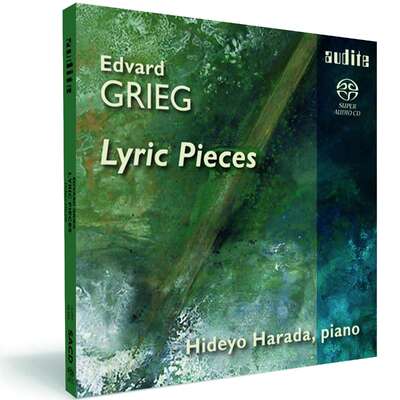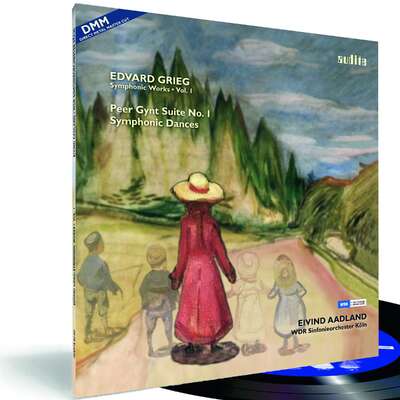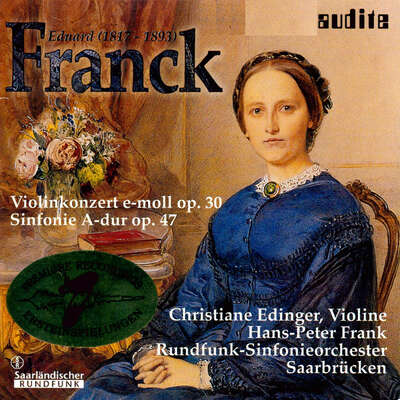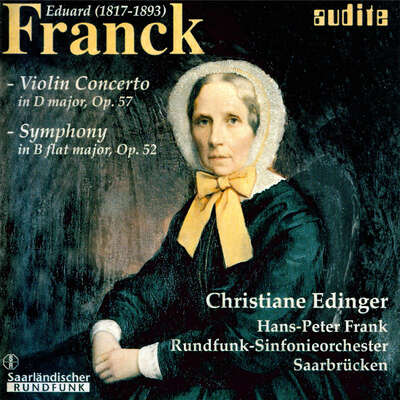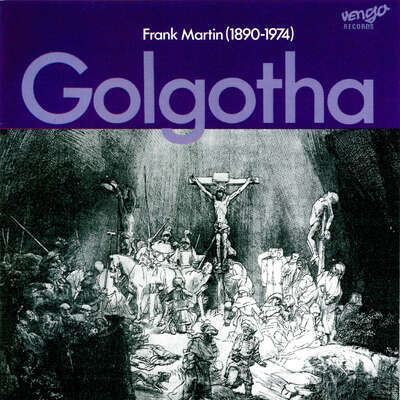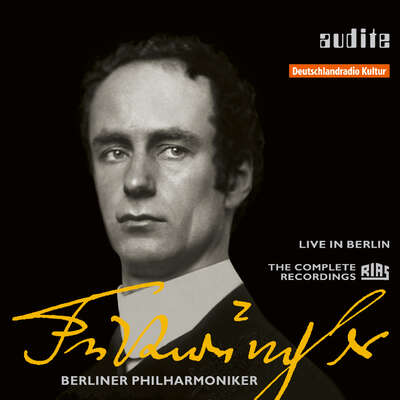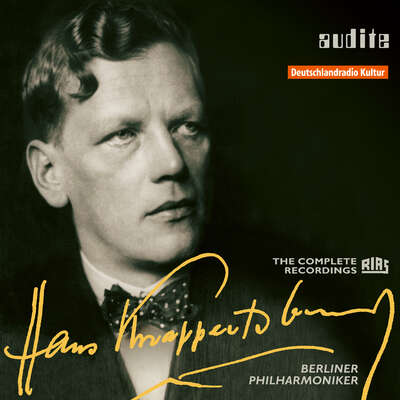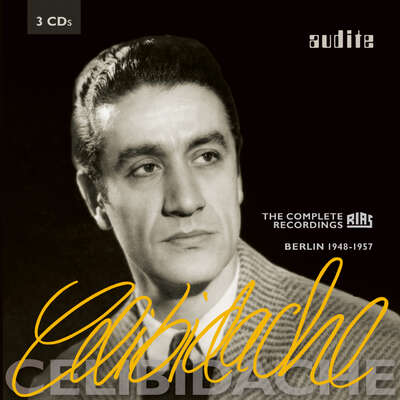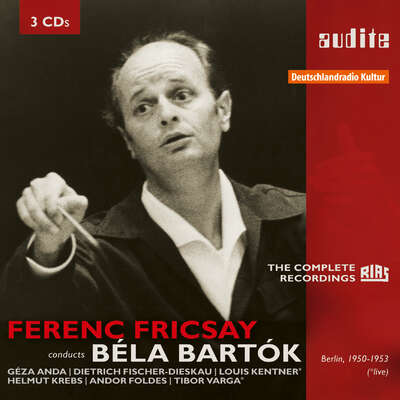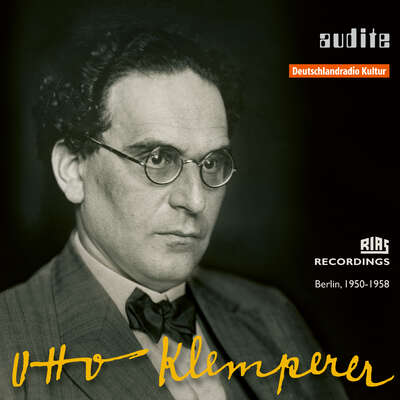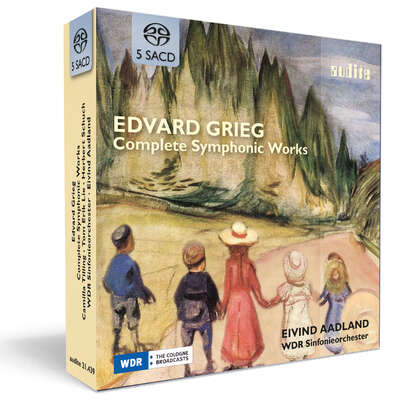
Edvard Grieg integrated his native dance rhythms as well as the Norwegian language into his music to such an extent that it became a symbol of longing for political independence from Sweden – notably in his songs, the most popular of which have been recorded here by the WDR Sinfonieorchester Köln in Grieg’s own arrangement for string orchestra. These are complemented by Grieg’s suite in the “old style”, From Holberg’s Time, a homage to the great poet of the baroque, Ludvig Holberg.more
"This new complete series of Grieg's orchestral music is building into a really excellent one. (...) In this instance, Eivind Aadland is proving himself to be a major interpreter of his countryman's music." (International Record Review)
Details
|
Edvard Grieg: Complete Symphonic Works Vol. II
Two Elegiac Melodies (Op. 34), From Holberg’s Time (Op. 40), Two Melodies (Op. 53) & Two Nordic Melodies (Op. 63) |
|
| article number: | 92.579 |
|---|---|
| EAN barcode: | 4022143925794 |
| price group: | ACX |
| release date: | 5. August 2011 |
| total time: | 52 min. |
Informationen
"The flavour of this music is in myblood",says the conductor Eivind Aadland, who grew up in Grieg's hometown of Bergen and who today isan international artist. Grieg studied in Leipzig and created a form of Nordicmusic language - by integrating into his music many songs and dances of hisnative land - at a time when the Norwegian language itself was in turmoil andthe country was seeking political independence from Sweden.
ThisSACD is the second volume in audite's five-part recording series of Grieg'scomplete symphonic works with Eivind Aadland and the WDR Sinfonieorchester.These works for string orchestra - a genre which Grieg mastered like no other -are chiefly arrangements of songs and piano pieces. Whereas the songarrangements of the Elegiac Melodies Op.34 and the Two Melodies Op. 53 were aform of "export editions" for non-Scandinavian countries (where they wereextremely popular, even during Grieg's lifetime), the famous suite From Holberg's Time Op. 40 is a homageto Ludvig Holberg, the caustic "Molière of the North", whose 200thbirthday was celebrated in Bergen in 1884. For this occasion, Grieg composed asuite "in the old style" on dance forms of the late baroque (Holberg's owntime) without, however, denying his own, romantic style. The latest work inthis selection, the Two Nordic Melodies Op.63, was written by the 51-year-old Grieg who was touring internationally as aconductor and who, in the absence of major works, broadened his repertoire withsmaller pieces.
audite'scomplete edition includes Grieg's symphonic works as well as two suites fromhis incidental music, compiled by the composer himself specifically for concertuse. The third volume of the complete edition is scheduled for release in 2012.
Eivind Aadland was chief conductor andartistic director of the Trondheim Symphony Orchestra from 2003 until 2010 andhas also worked with many other Scandinavian, European and international orchestras.Aadland initially studied the violin with Yehudi Menuhin. From 1981 until 1989he was concert master of the Bergen Philharmonic and from 1987 until 1997 musicdirector of the European Union Chamber Orchestra. He subsequently devotedhimself fully to his conducting career and studied with Jorma Panula.
Reviews
The New Listener | 09/04/2016 | Oliver Fraenzke | April 9, 2016 Perlen des Nordens
Eivind Aadland geht dem Orchesterwerk dieses grandiosen Komponisten auf den Grund, gemeinsam mit dem WDR-Sinfonieorchester Köln spielte er es auf fünf CDs für audite ein. Das Orchester spielt klar und durchhörbar, der Dirigent verzichtet auf alle unnötigen Romantizismen und überdehnte Tempi rubati. [...] Es entstehen vielfarbige Schattierungen und das Ganze wird nicht wie viel zu häufig zu hören in einem einzigen monochromen „Grieg-Klang“ verschmolzen.Mehr lesen
www.opusklassiek.nl | januari 2016 | Aart van der Wal | January 1, 2016
Het is duidelijk, Aadland en het orkest hebben dit repertoire zo goed in de vingers, er zoveel affiniteit mee dat dit project alleen daarom al als ijzersterk mag worden gekwalificeerd Daar komt dan nog bij dat het orkestspel van hoog gehalte is en dat de in de Keulse Philharmonie en de Bismarck-zaal gemaakte opnamen tot de beste mogen worden gerekend die ik tot nu toe uit die bron heb gehoord.Mehr lesen
Vårt Land
| nr. 238, 69. årgang | Olav Egil Aune | October 15, 2013
Grieg på alvor
Grieg løfter seg i nye innspillinger. Eivind Aadland vipper ham ut av det kjente kjedsommelige.
Ingenting er friskere enn Grieg. Jngenting kan spilles kjedeligere, heller.Mehr lesen
www.klavier.de
| 20.03.2012 | Peter Büssers | March 20, 2012
Nordische Melodien flüssig und natürlich
Grieg, Edvard: Sämtliche Orchesterwerke Vol. 2
Mit norwegischen Melodien geht die Aufnahme der sinfonischen Werke GriegsMehr lesen
klassik.com
| 20.03.2012 | Peter Büssers | March 20, 2012 | source: http://magazin.k...
Nordische Melodien flüssig und natürlich
Grieg, Edvard – Sämtliche Orchesterwerke Vol. 2
Mit norwegischen Melodien geht die Aufnahme der sinfonischen Werke GriegsMehr lesen
Das Orchester | 01.01.2012 | Walter Schneckenburger | January 1, 2012
Mit den ersten beiden Folgen der Gesamteinspielung aller sinfonischen WerkeMehr lesen
www.opusklassiek.nl | januari 2012 | Aart van der Wal | January 1, 2012
Er gingen al twee cycli aan vooraf: van Ole Kristian Ruud (BIS) en vanMehr lesen
nobilis | Januar 2012 | Jörg Worat | January 1, 2012 Skandinavischer Meister
Die Musik des Norwegers Edvard Grieg passt zur Jahreszeit: Sie ist nichtMehr lesen
La Musica | December 2011 | December 1, 2011
koreanische Rezension siehe PDF!Mehr lesen
Diverdi Magazin | diciembre 2011 | Blas Matamoro | December 1, 2011
En la orquesta de Grieg
En Audite, las dos primeras entregas de una integral
De las varias habilidades compositivas de Grieg, la orquesta no es la menor. Por eso, y no porque estemos ante págínas olvidadas, vale especialmenteMehr lesen
Algo similar ocurre con las canciones orquestales sín palabras (¿quién no ha acudido al pañuelo escumando Última primavera?), cuyos generosos arcos melódicos sugieren versos y convierten en poeta – inédito, menos mal – a cualquiera de nosotros. Mundo muy distinto es la otra suite, De los tiempos de Holberg, un delicioso recorrido rococó por los salones de la Escandinavia galante. También podríamos recordar al fino nacionalismo de Grieg y sus ritmos danzantes pero sería tópico.
Volver sobre este repertorio tiene sus riesgos. Sobran las mejores referencias y enseguida se agolpan en nuestra memoria nombres y más nombres de directores magistrales. Con Eivind Aadland la excelencia está asegurada y cabe una observación especial: la diferencia de sonoridades que consigue especulando con las cuerdas solas o explayando toda la paleta en los viajes de Pedrito el Afortunado. Aquel es un mundo intimo, subjetivo, reticente a la variedad exterior. Este, simplemente – major dicho: complejamente – es el mundo a secas, el variopinto mundo, el de la gran orquesta de Edvard Grieg.
auditorium | December 2011 | December 1, 2011
koreanische Rezension siehe PDF!Mehr lesen
www.allmusic.com | 01.12.2011 | Mike D. Brownell | December 1, 2011
Like Vol. 1 of Audite's survey of Edvard Grieg's complete symphonic music,Mehr lesen
www.ResMusica.com | 22 novembre 2011 | Jean-Luc Caron | November 22, 2011 Deuxième étape d’une intégrale orchestrale Grieg chez Audite
Contrairement à ce qu’on pourrait s’imaginer, l’œuvre d’EdvardMehr lesen
France Musique
| lundi 21 novembre 2011 | Denisa Kerschova | November 21, 2011
BROADCAST Venez quand vous voulez
E. Grieg: Au temps de Holberg op 40
Sendebeleg siehe PDF!Mehr lesen
Audio Video Club of Atlanta | 01.11.2011 | Phil Muse | November 1, 2011
Norwegian conductor Eivind Aadland leads the WDR Sinfonieorchester of KölnMehr lesen
Record Geijutsu | November 2011 | November 1, 2011
japanische Rezension siehe PDF!Mehr lesen
International Record Review | November 2011 | Robert Matthew-Walker | November 1, 2011
This new complete series of Grieg's orchestral music is building into a really excellent one. In the past, although there has been only one integralMehr lesen
Here, on Volume 2 of this projected five-disc set (I reviewed the first volume in the July/August issue), we have Grieg's complete music for string orchestra, with the exception of 'The Death of Åse' (from Peer Gynt), which has already appeared on Volume 1 (in the first Suite taken from the play's incidental music). As has become something of the norm in relatively recent years, it is encouraging to hear this music played by full string strength, rather than the chamber-musical number of players which so often used to be the case in recordings made from about 1970-2000.
Any doubts that might remain as to the 'authenticity' of the performances in the choice of a German orchestra are set at nought under Aadland's direction: as with Volume 1, he has clearly gone from first principles, and the results are enormously impressive. Indeed, in some respects they are rather more than that, for in the second of the utterly delightful Two Nordic Melodies, Op. 63 (the 'Cowkeeper's Tune and Country Dance', as they were once known in English-speaking countries), Aadland gets the opening gesture of the 'Country Dance' to be played without vibrato, imitating the natural sound of the Norwegian folk instrument, the Hardanger fiddle, as if tuning-up prior to the Dance itself. The result is utterly entrancing, a small but by no means insignificant aspect of this conductor's love for and desire to communicate this totally originaI music. We may hear a similar effect in the 'Norwegian' melody, the first of two from Op. 53; if anyone questions the 'rightness' of this, one may reply that Grieg, in the early 1890s and about the time of his fiftieth birthday, went by horse and cart around Norway collecting folk songs, a full ten years before the English folk-song movement began in this country, and at a time in Grieg's life when – an international figure – he had no need to do so.
By such modern interpretative means as we have noted, Aadland reveals the heart of this music in a completely new yet totally convincing manner. Another of his qualities is his insistence on giving each note its full length, which, in Grieg's slow string music, adds greatly to the expressive nature of these interpretations. Aadland is at all times unerring in adhering to the composer's demands in matters of phrasing and of internal string tone: the result is a most admirable recording, with the very familiar Holberg Suite being particularly pleasing; the conductor's tempos are excellent and all repeats are correctly observed.
The accompanying notes are also good and the recording quality is first-class, but it is odd to see a booklet in which the composer's dates are nowhere to be found. Nonetheless, this is a most impressive disc.
concerti - Das Berliner Musikleben | November 2011 | AC | November 1, 2011 Rhythmus im Blut
Wer Edvard Griegs Peer-Gynt-Suiten mag, wird auch am übrigen sinfonischenMehr lesen
Gramophone | November 2011 | Mike Ashman | November 1, 2011 Volume 2 of Cologne’s Grieg cycle arrives
A happy star reigned over Cologne two autumns ago when violinist-turned-maestro Eivind Aadland recorded his cycle of Grieg symphonic works with theMehr lesen
This lack of the borrowed German romanticism that still cloaks much non-Scandinavian Grieg-playing – the composer portrayed as a kind of simplified Brahms with the Hungarian bits writ Nordic – does not indicate any lack of passion. The uberrestraint which characterised Ole Kristian Ruud's Bergen survey of this music is replaced here by a real evocation of the sadness – perhaps darkness would be a better word – behind Grieg's melodies and themes. A weighty and tense interpretation of From Holberg's Time gives the lie to the composer's none-too-serious apology for the work as 'periwig music' – a kind of 18th-century mask to his own emotions – and attains a dramatic level more suggestive of the plays and writing of Ludvik Holberg than most rivals. The song transcriptions, none more so than the Melody, Op 53 No 1 (retitled 'Norwegian'), are lent here an importance far beyond that of the salon encore material as which they are often scheduled.
In this series (three releases to come) or as a separate venture, Aadland and his adoptive orchestra must be let loose on as complete as possible a Peer Gynt. Almost singlehandedly these days he continues to make the case for Grieg as serious orchestral writer.
Pizzicato | N° 216 (10/2011) | RéF | October 1, 2011
Ob es klug war, in der Grieg-Gesamtaufnahme eine CD mit einem Programm nur für Streichorchester zusammen zu stellen, scheint mir fraglich, wo dochMehr lesen
Fono Forum | Oktober 2011 | mku | October 1, 2011 Gemischte Gefühle
Bemerkenswert rasch schreitet die Grieg-Edition bei Audite voran. Auch wenn die Einspielung aller Werke für Streichorchester bereits vor der erstenMehr lesen
Audiophile Audition | September 30, 2011 | Gary Lemco | September 30, 2011 Volume two of the Grieg symphonic works devotes itself to the string ensemble, particularly those folk-spirited dances and songs rife with rustic energies.
This second volume in a five-part series of Grieg’s complete symphonicMehr lesen
Yorkshire Post | Friday 16 September 2011 | David Denton | September 16, 2011
I cannot recall a more beautifully played or more thoughtfully conducted disc of Grieg’s music for string orchestra. The young Norwegian, EivindMehr lesen
Klassisk Musikkmagasin | 13. argang, 3/2011 | September 1, 2011
Hvem trenger enda en innspilling av Griegs orkestermusikk? (Jeg tror det erMehr lesen
Applaus | Jg. 35, September 2011 | ar | September 1, 2011 Complete Symphonic Works
Ende der 1980er-Jahre legte die Deutsche Grammophon in zwei Boxen sechs CDsMehr lesen
www.classicfm.co.uk
| Mornings On Classic FM, Monday 29 August 2011, 9 am - 1 pm | John Suchet | August 29, 2011
Edward Grieg Complete Symphonic Works
John's CD of the Week
Monday 29 August: The conductor Eivind Aadland comes from a family whereMehr lesen
RBB Kulturradio | CD der Woche 08.08. - 14.08.2011 | Inga Langhans | August 8, 2011
Edvard Grieg: "Die sinfonischen Werke Vol. II"
Mit dem WDR Sinfonieorchester Köln unter Eivind Aadland
Unter Leitung von Eivind Aadland spielt das WDR Sinfonieorchester Köln Griegs komplettes symphonisches Schaffen ein. Auf dieser CD sind die WerkeMehr lesen
In der Mitte seines Lebens vertonte Grieg Gedichte des Volksschullehrers Aasmund Olafsson Vinje. Die zwölf Vinje-Lieder für Singstimme und Klavier wurden in Norwegen sehr populär und sind in dieser Form bekanntes Repertoire. Die Vinje-Lieder Herzwunden, und Letzter Frühling instrumentierte er für das Bergener Symphonieorchester, das er 1880 als Dirigent übernommen hatte. Im Jahr 1881 erschienen sie als Zwei elegische Melodien op. 34. Diese bekannten Melodien bilden in der neuen Einspielung des WDR Sinfonieorchesters den berührenden Beginn.
Eine norwegisch-deutsches Zusammenfinden
Griegs Bearbeitungen für Streichorchester waren ein Versuch mehr Verständnis seiner Musik, insbesondere im Ausland, zu gewinnen. Der Komponist stand Zeit seines Lebens im persönlichen Konflikt zwischen dem Nationalen und dem Individuellen. Gerade die Verwendung von Material aus der Volksmusik Norwegens war für das Ausland interessant. In seiner Heimat wurde ihm jedoch zur Last gelegt, das Norwegische zu übertreiben. Diese Einspielung zeigt den inneren Konflikt Edvard Griegs. Der Dirigent Eivind Aadland fühlt sich in Griegs Musik zu Hause und liefert mit dieser Produktion einen geglückten Versuch einer deutsch-norwegischen Synthese, die sowohl Elemente aus der norwegischen Volksmusik, als auch der Kunstmusik enthält.
Eine einfühlsame Produktion
Die typische Klangwelt Edvard Griegs ist beim Kölner WDR Symphonieorchester bestens aufgehoben. Während der Dirigent Aadland das Orchester leitet und dabei viel Wert auf eine volksmusikalisch anklingende und ungewohnt unsentimentale Spielweise legt, erledigen die Musiker ihre Aufgabe in gewohnt bester Studioqualität. Die Bearbeitungen der Vinje-Lieder zeigen dies besonders, auch ohne Text, und dazu hat der Norweger Aadland einiges beigetragen. Der Volksmusikcharakter kommt in der Detail-Arbeit des Dirigenten zum Ausdruck - beispielsweise, indem auf Vibrato verzichtet wird.
hifi & records | 4/2011 | Ludwig Flich | April 1, 2011 Edvard Grieg Symphonisches Werk
Braucht man 555 Scarlatti-Sonaten, 1.001 Bach-Kantaten, 7.000Mehr lesen

































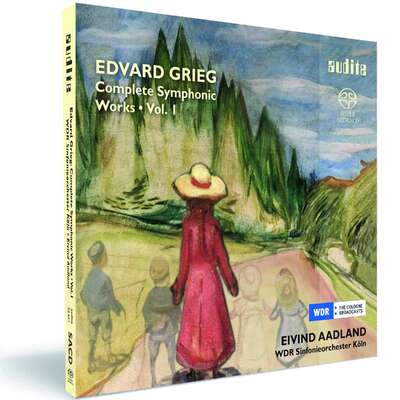
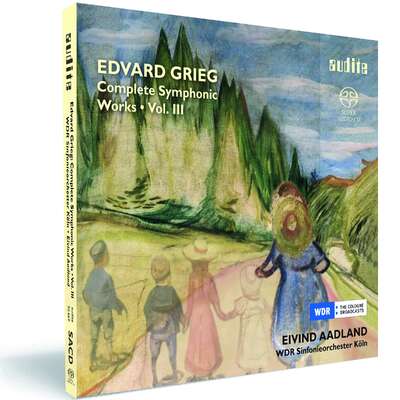
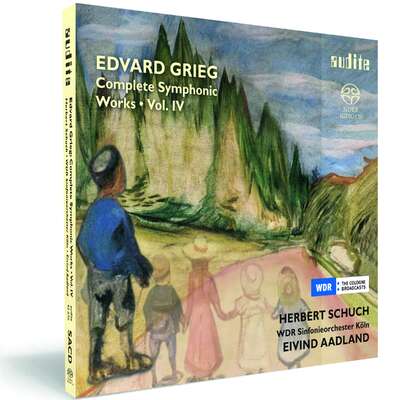
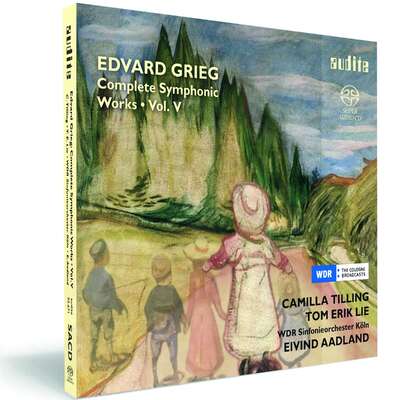

![23446 - k[NOW]n Piano](/image/product/3d/carousel/23446-known_piano.jpg)
